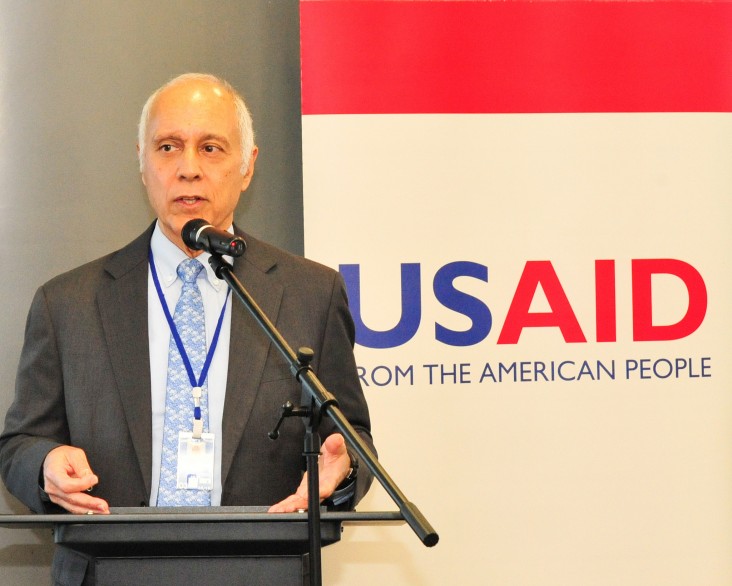
Good morning all, and welcome to the Regional Development Mission for Asia. We are delighted to have you here today, to share in the launch of this very important new program. It offers enormous potential to support the growth of social enterprises, and that can give us one more powerful tool to address some of the world’s most pressing development problems.
I also just had the good fortune to hear a presentation by Durreen and Alison, and was truly struck by how much we have in common, in terms of our core missions: we both focus on partnerships; on connecting different stakeholders to achieve stronger development impacts; on capacity building; and on women’s empowerment. It is great to partner with you.
The idea behind Shujog is fairly simple. Impact investors are looking for a pipeline of businesses to invest in that generate both financial and social returns. Yet these investors are often unable to connect with early-stage entrepreneurs, and that means there is so much potential still waiting to be tapped on both sides. Shujog’s ACTS program, along with partners Bank of America Merrill Lynch, JP Morgan Chase, and the Rockefeller Foundation, will help bring them together, by providing Assistance for Capacity Building and Technical Services (ACTS). This will help social enterprises to better attract investment; scale their businesses; and increase their impact.
A pioneer in impact investing in Asia, Shujog is one of six catalytic partnerships formed under USAID’s Partnering to Accelerate Entrepreneurship, or PACE. PACE encourages private sector investment in early-stage enterprises and identifies innovations that can help unlock the potential of thousands of enterprises worldwide.
Shujog ACTS is an alliance-centered program that builds the network of private sector intermediaries focused on serving social enterprises as clients, while solving a liquidity problem that earlier stage enterprises often face. It partners with other donors and private financial institutions who will contribute their own expertise, and who, we assume, will also learn from one another as we move forward, together, into this relatively new space.
Shujog will operate throughout the Asia Pacific region in five focus sectors: agriculture, health, education, energy, and water. And it will support earlier-stage social enterprises that are scalable; have an established proof of concept and concrete evidence of social impact; and are looking to raise between $150,000 to $2 million. It prioritizes earlier stage social enterprises where the majority of beneficiaries and/or stakeholders are women.
Private companies, called Technical Assistance Providers, that provide business development, legal, and financial advisory services directly to the social enterprises, are implementing partners with Shujog. In fact, Shujog ACTS has already engaged with five implementing partners in its first six months of operation. In addition, the program will also work with USAID Missions around the region to augment work they are currently involved in, such as agriculture and energy.
We are pleased RDMA will be managing a PACE award, and we are the only USAID Mission to do so. And experience under this innovative public-private partnership called Shujog ACTS will help develop and strengthen the impact investing arena in Asia. It will also help us to better understand this impact investing environment, and where and how USAID can best assist in helping it grow.
Thank you everyone, and I’ll now turn it over to Durreen Shahnaz, Shujog’s founder, who will share with us why PACE, Shujog ACTS, and supporting impact investing in Asia is so critically important.







Comment
Make a general inquiry or suggest an improvement.